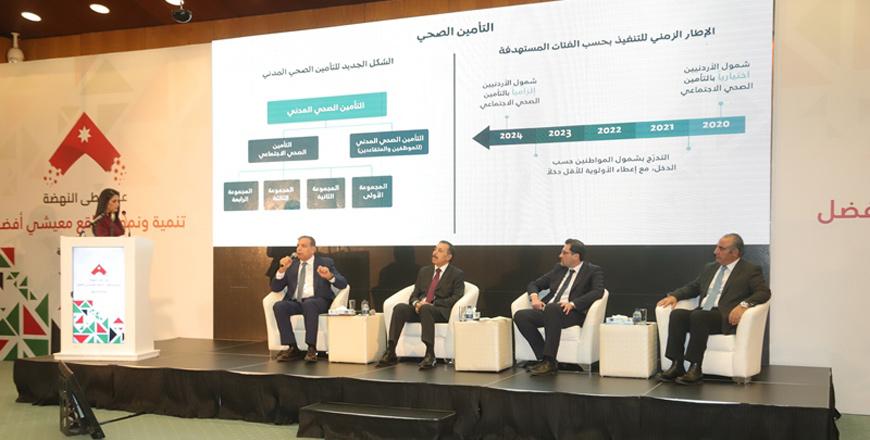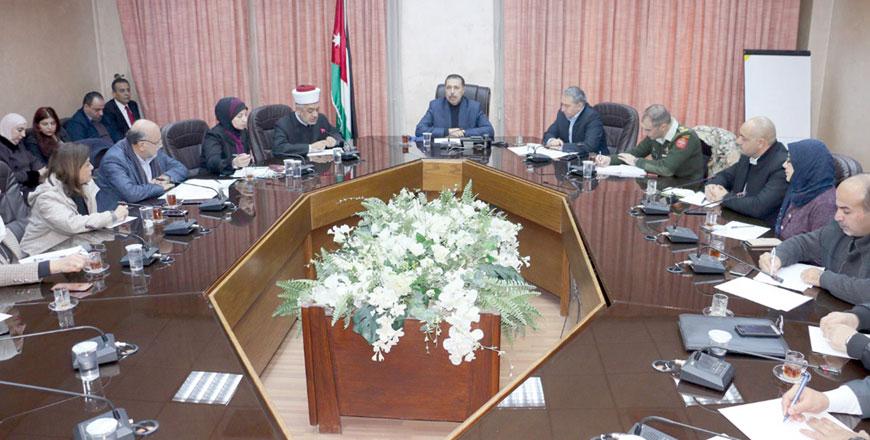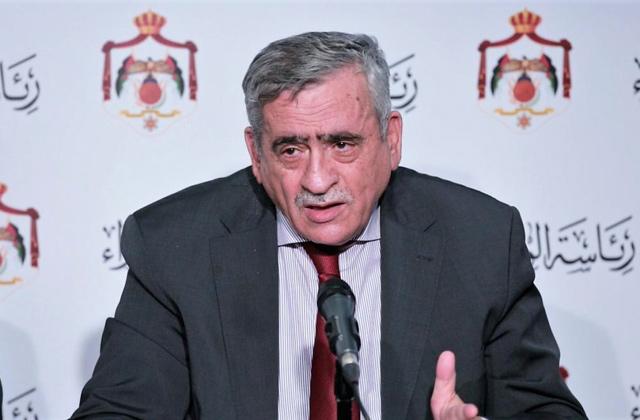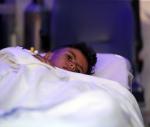You are here
Panel session examines future of vital sectors as gov’t rolls out fourth incentive package
By Bahaa Al Deen Al Nawas - Dec 24,2019 - Last updated at Dec 24,2019

Health Minister Saad Jaber, Education Minister Tayseer Nueimi, Transport Minister Khalid Saif and Amman Mayor Yousef Shawarbeh discuss developments to vital sectors under the fourth incentive package at a panel discussion at the Royal Cultural Palace on Tuesday (Photo by Osama Aqarbeh)
AMMAN — The government on Tuesday announced its plans to develop the education, health and transport sectors during a panel session held to discuss the fourth incentive package to improve the national economy at the Royal Cultural Palace.
The panel hosted Health Minister Saad Jaber, Education Minister Tayseer Nueimi, Transport Minister Khalid Saif and Amman Mayor Yousef Shawarbeh.
Health
Jaber announced the formation of four groups under the comprehensive civil health insurance system. The first group includes insured families with a total income of less than JD300, as well as families living in underprivileged areas, people with disabilities and families who benefit from national aid.
"The government will cover 100 per cent of the first group's health insurance subscription fees," Jaber said.
The second group includes families with a total income ranging between JD300 and JD1,000, for whom the government will cover between 30 to 90 per cent of subscription fees, the minister noted.
The third group includes families with a total income of over JD1,000, who are provided with "affordable annual instalment options" and privileges that encourage them to subscribe to health insurance.
The fourth group is for optional subscribers who wish to receive health services from the private sector as well as the public sector, which was made possible through a public-private partnership with insurance companies, the minister noted.
"This system includes children of Jordanian women married to non-Jordanian men," Jaber said.
The minister said that in the first quarter of 2020, three new hospitals will be opened: Salt Public Hospital, a district hospital in Fuheis, and an emergency ward within Al Bashir Hospital with a capacity of 150 beds.
"The ministry will also add 400 beds through the expansion of Princess Rahma Hospital, Ghor Safi Hospital, Tutanji Hospital, Ramtha Hospital and new wards in Al Bashir Hospital," the minister said.
He said that this will increase the total number of beds provided by the Health Ministry from 5,200 to 6,100.
Education
Nueimi highlighted two developments in the education system: Inclusion of all five-year-old children in the Kingdom in KG2 education as of the academic year 2021 and enchancing school environments.
He cited studies showing the investment returns in kindergarten education, noting that every JD1 spent on kindergarten education is forecast to return JD10 to the GDP.
"A highly credible study from a trustworthy source revealed that the actual enrolment rate in kindergarten stands at 84 per cent in the public, private and civil sectors," Nueimi said, which, according to the Prime Ministry's presentation, includes 208,000 children.
Nueimi reiterated the benefits of investing in early education, noting that the changes will create 800 jobs.
Regarding school environment improvements, the minister noted that 60 new schools will be built next year.
The government will improve integrative education for all segments of society, especially for people with disabilities, and will also work on improving schools' nutrition programmes and cleanliness, in addition to revamping 50 schools.
"The environment is not only physical about the building and its safety, but it is also about feeling safe from within," Nueimi said.
Transport
The Transport Ministry will distribute "support tickets" to public transport users who are eligible for the Takaful programme, totalling around 10,000 families, Saif said.
The ministry will implement the programme over several phases, the first of which will begin in the first quarter of 2020, costing a total of JD1.8 million, Saif said.
The transport minister said that there will be an application that allows people to track public transport services and pay electronically.
The pilot phase will start in mid-2020 for a total of 622 buses in Jerash and 265 buses for university routes, benefitting 120,000 students, according to Saif.
For his part, Shawarbeh said that the Bus Rapid Transit (BRT) project is 55 per cent complete, noting that operation will begin by the end of 2021.
Regarding the Amman Bus project, the mayor said that the first phase saw the launch of 135 buses in 2019, adding that an additional 151 buses will be added in 2020.
"The Greater Amman Municipality (GAM) offers JD9 million annual support to the Amman Bus project," he said, adding: "Public transport is a service, not an investment, which is why it requires support."
Shawarbeh also said that the cesspit known as the “Pepsi Pool” in Ruseifa will be turned into a public park by March of 2020 at a cost of JD12 million.
He also said that next month, more than 80 per cent of GAM's services will be digitised.
Related Articles
AMMAN — In light of the government's recent decision to include all five-year-old children in the Kingdom in KG2 education during the 2021 a
AMMAN — A coordination meeting on Saturday discussed means to implement the national strategy and operational plan to accommodate all childr
AMMAN — The government announced that there will be no more curfew on Fridays as per a set of decisions announced on Wednesday to gradually
















